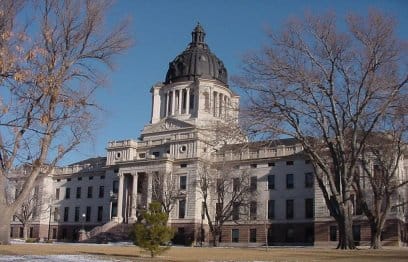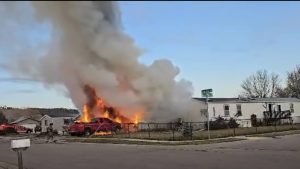PIERRE, S.D. (SDBA) — The Senate Taxation Committee approved a bill today (Wednesday) that would lower the cap on property tax revenue increases for local governments from 3 percent to 2.5 percent annually.
House Bill 1235, sponsored by Rep. Greg Jamison, R-Sioux Falls, passed 6-0, despite concerns from local government associations about potential impacts.
Cap Reduction Approach
Jamison characterized his bill as a targeted approach to address mounting property tax concerns.
“This will create a downward pressure on our property taxes,” Jamison said. “It sends a message to all those taxing districts that the public has seen enough or wants a change and wants some relief.”
The bill reduces the maximum annual growth in property tax revenue that taxing entities can collect. Jamison explained it would push local governments to justify tax increases through opt-outs directly to voters.
“If we’re fixing potholes, and we need the money, you might then get to decide. Yeah, I want that pothole fixed. So, I’m willing to fund and pay property taxes in an opt-out fashion,” Jamison said.
Opposition Arguments
Local government representatives testified against the measure.
Yvonne Taylor with the South Dakota Municipal League noted cities collect only about 12 percent of property tax dollars while facing similar inflationary pressures as state government.
“Our objection to this bill is that we are not the problem,” Taylor said. “When the state was going up for something like 14 percent because inflation was around 8 percent, we were stuck at three as our max, even though our costs continued to grow.”
Craig Matson, representing county commissioners, expressed particular concerns about impacts on high-growth counties.
“The cap set in this bill is unworkable, primarily for six counties,” Matson said. “Those six counties have the greatest growth of the 66 in South Dakota.”
School District Concerns
Heath Larson from Associated School Boards of South Dakota warned of potential complications for school budgets.
“The 2.5 percent cap is going to be tight in lean budget years for our schools, very difficult for meeting teacher compensation,” Larson said.
Committee Support
Committee members acknowledged the concerns but advanced the bill to keep property tax relief discussions active in the legislative session’s final days.
Several senators indicated their committee votes might differ from their positions on the Senate floor, depending on the fate of other property tax measures moving through the process.
The bill previously passed the House 39-31.





